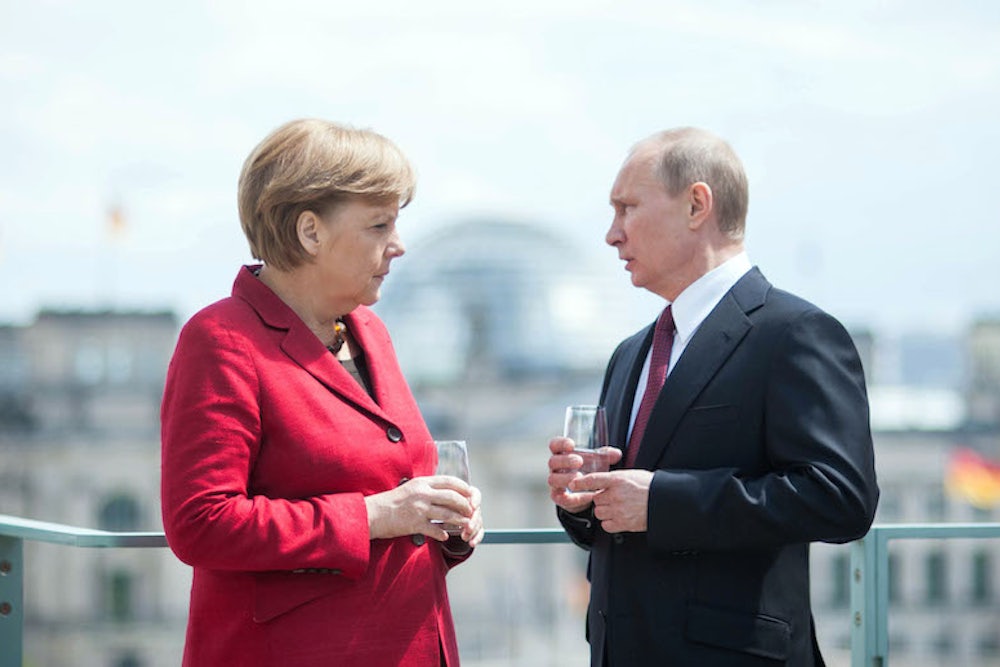One of the questions that people seem desperate to answer in the wake of the aggression against Ukraine is why Germany is so soft on Vladimir Putin's Russia. And of course whenever the subject of German foreign policy arises, all sorts of explanations are offered, often concerning German guilt about the Second World War. But in the case of Germany's unwillingness to support tough sanctions against Russia, such complex and historical explanations are unnecessary. In fact, Germany is behaving a lot like the United States.
The most recent piece to tackle the question of Germany's stance was written by Clemens Wergin, the editor of Die Welt, in the New York Times. According to Wergin, the reasons for Germany's inaction are numerous: Russian propaganda, glib anti-American sentiment, and conservative sympathy for Putin's traditional agenda. Moreover:
There is also a disturbing undercurrent among ordinary Germans that harks back to old and unfortunate German traditions. We have come to think of Germany as a Western European country, but that is largely a product of Cold War alliances. Before then it occupied a precarious middle between east and west.
The geographical version of pop psychology might have a tiny bit to recommend to it. But, as Wergin barely acknowledges, this is fundamentally about economics.
The problem for Germany, as Danny Vinik pointed out, is that it is economically dependent on Russian oil and natural gas. The Germans—and the Europeans more broadly—are concerned that action against Russia will lead to cutoffs in energy supplies. Thus Germany's position, and the Obama administration's frustration. Americans are perfectly within their rights to feel moralistic about Germany's behavior, and Russia's invasion of Ukraine. But we shouldn't pretend that we act any differently when the country behaving badly is one that we rely on so extensively for economic health.
Take the case of Saudi Arabia. It funds extremism throughout the Middle East and South Asia. It recently backed a coup in Egypt. And it essentially invaded Bahrain several years ago. When it did the last of these things, the United States stood silently by, and mumbled some euphemisms about finding a peaceful resolution. In fact, our rhetoric was much more mild than German statements about Ukraine.
So, is America's unwillingness to confront Saudi Arabia a sign of our mindset, or our history, or whatever other factors people attribute to Germany? Of course not. It's about money. Anger over Germany's stance is perfectly understandable (as is anger over the American-Saudi relationship). But let's not pretend that it's unique.
